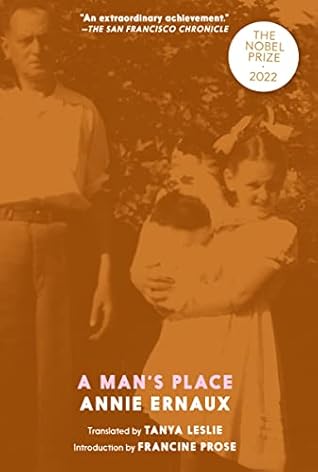More on this book
Community
Kindle Notes & Highlights
His meanness was the driving force which helped him resist poverty and convince himself that he was a man.
Crossing the bread, going to mass, attending Easter communion: religion, like hygiene, gave them a sense of dignity.
The relentless passing of the seasons, the simple joys and quiet of the countryside. The land my father worked belonged to others. He saw no beauty in it, the magnificence of Mother Earth and other such myths were lost on him.
A photograph taken in the back yard, near the edge of the river. A white shirt with rolled-up sleeves, a pair of trousers, flannels most likely, sloping shoulders and slightly rounded arms. An expression of discontent on his face, maybe he wasn’t quite ready for the photograph. He is forty years old. Nothing in the picture to account for the past suffering, or his hopes for the future. Just the obvious signs of age—the slight paunch, the receding hairline—and those, more discreet, of his social condition—his arms hanging stiffly at his sides and the washhouse and lavatory as a setting, hardly
...more
Anyway one always took photos on Sundays because one had more time and was properly dressed.
In front of people whom he considered to be important, his manner was shy and gauche and he never asked any questions. In short, he behaved intelligently. He realized we were inferior and refused to accept this, while at the same time doing everything he could to conceal the fact.
His maxim, never to lay oneself open to criticism, was achieved by being polite, remaining neutral and keeping a tight rein on one’s temper, so as not to do or say anything one might regret later.
Every time I did well in composition, and later in my exams, he saw it as an achievement and the hope that one day I might be better than him.
I was slowly drifting into middle-class circles, where I gained admittance to teenage parties. All one had to do to get in was prove that one wasn’t soppy—and that was so difficult.
Away from home, I had stripped my parents of their speech and mannerisms, turning them into magnificent people. Now I was hearing their real voices again—loud and booming—and their broad Norman pronunciation, saying “a” in place of “elle.” I realized they had always been like this, without the “decorum” and the language which I now considered to be normal. I felt torn between two identities.
It was a muddled scene, with the two of them shouting, firing questions at the child without even waiting for answers and criticizing each other for exhausting the poor little fellow. But oh, they were so happy.
They were skeptical about my notion of education: having an afternoon nap, cutting out sweets and so on. The four of us ate at the table by the window, with the child sitting in my lap. It was a magical evening, blissfully quiet, suggestive of redemption.
He spoke the words to prove that he wasn’t ill, yet it was precisely because he was drifting away from this world that he was making such a desperate effort to cling to it. After that he didn’t speak to me again.
His greatest satisfaction, possibly even the raison d’être of his existence, was the fact that I belonged to the world which had scorned him.


